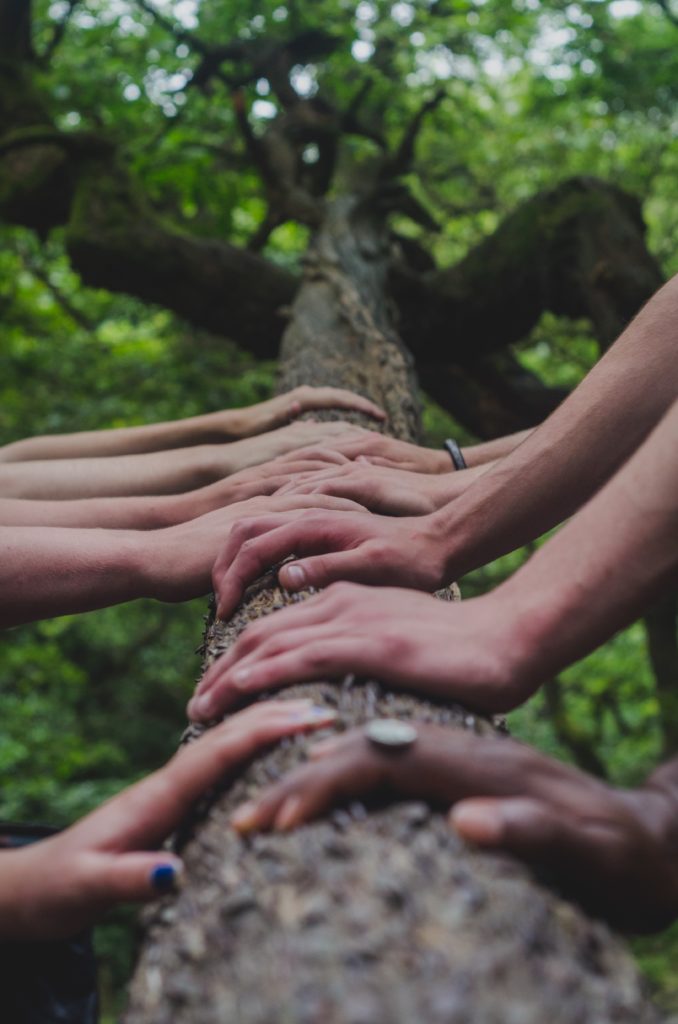
What is your community of wisdom doing for the environment? Are your faith leaders talking about climate change?
I was recently introduced to the work of Dekila Chungyalpa, a conservationist and practicing Buddhist who founded the Sacred Earth program at the World Wildlife Fund and the Loka Initiative for the integration of faith and ecology at the University of Wisconsin-Madison. Chungyalpa recognized the untapped potential in engaging religious communities in environmental work. The programs she created train faith leaders, communities, and multi-faith alliances worldwide to engage in environmental stewardship and demand political action on climate change. Important partners have included the Global Catholic Climate Movement, which is building a movement in response to Pope Francis’ call to take action against environmental injustices. Communities of wisdom can also be a place of healing for those suffering from anxiety about the future of our planet. Chungyalpa herself, for example, uses a traditional Tibetan Buddhist practice of symbolically breathing in other’s suffering and breathing out compassion for them. This takes the focus off of her individual anxiety and redirects it toward her ability to support others.
Planting Seeds
Even if the day of judgement is upon you, use those final seconds to continue planting seeds.
I recently heard Muslim American writer Wajahat Ali share this quote, attributed to the Prophet Muhammad. He was talking to Rabbi Moline of Interfaith Alliance about the American purpose. Ali admitted that he often feels hopeless about America’s future. And yet, “my faith commands hope, and I refuse to give in to cynicism and apathy…Our job is to be gardeners…And even if our generation will not live to taste the fruit, we know that our children will have that fruit, and that makes it all worth it.”
Each one of us has a choice to make: apathy and despair, or hope and action, even if the outcome is uncertain and imperfect. At this moment in human history, when scientists are telling us that we have likely passed the point of no return for climate change, our work is twofold: Tend to the grief of all our losses and save what we can. The garden we will leave for our children will be less abundant, but nature is resilient and adaptable, and a human lifespan is just a speck on the timeline of the planet. The question is: how to motivate ourselves to move through grief into renewed hope and action?
The Untapped Potential of Faith Communities
Most people have trouble changing their behavior now for an outcome that only their children and grandchildren may see. Decades of public environmental education have revealed that knowledge alone is not enough to motivate behavior change. It requires a deep internal drive – a mix of emotional connection, values and purpose – reinforced by the support of a like-minded community, to propel people out of apathy.
This is why religious and spiritual communities hold significant potential to motivate their members’ actions. Values of compassion and responsibility towards future generations, a sense of the sacred in places and living beings, and an understanding of the interconnectedness of all creation can compel people of faith to live in line with their deepest values, even when the dominant social and economic powers around them are at odds with those values. (Of course, many non-religious people are motivated by similar values and also recognize our interdependence with the ecosystem.)
Not only do more than 80 percent of people in the world follow a wisdom tradition, faith-related institutions also own almost 8 percent of the total habitable land surface and constitute the world’s third largest category of financial investors. This is real economic power that can support sustainable livelihoods and divest from sectors that are fueling climate change.
We want to hear from you!
What is your community of wisdom doing to reduce its environmental footprint or advocate for environmental policies in your hometown and state? Drop us a line via email or Facebook and we will share your inspiring stories and urgent questions. Also stay tuned for our upcoming Paths Network course on Faithful Advocacy!
Photo by Shane Rounce on Unsplash
[author] [author_image timthumb=’off’]https://pathstounderstanding.org/wp-content/uploads/2021/07/IMG_20190727_180205-Copy-1.jpg[/author_image] [author_info]by Carla Penderock, Director of Contributor Relations at Paths to Understanding[/author_info] [/author]
